The saying goes that “everyone has a story in them” and it’s the mission of Writing Magazine to help you get yours out. Brought to you by real experts who know what it takes to improve your writing or get published, this monthly magazine is a must-have for all writers. Whether you write fiction, poetry, drama, children’s books, non-fiction or anything else, each issue features tips, practical exercises and real-life advice, that will not only help you get all that creativity onto the paper but also, get your name and profile out into the industry. With writing masterclasses from professionals, industry news, events listings, competitions where you can submit your work for fantastic prizes and real paid writing opportunities, Writing Magazine has everything you need to hone and improve your talents.
The NEURODIVERGENT Writer’s Toolkit
DEAR READER
Telling your (own) story • Acclaimed memoir author Georgie Codd explores turning personal experiences into gripping non-fiction
Your life, your way • Autofiction is a method of writing a story based on your own life. Marcia Hutchinson, author of The Mercy Step, describes the process of writing a fictional autobiography
EDITING YOUR NOVEL PART TWO • In the second part of this essential series, Sara Grant looks at the big picture analysis
Don’t fear the rewrite! • Rewiting your first draft might seem daunting, but, says James McCreet, it’s where you have the chance to really make your writing shine
PITCH PERFECT • The documents pitching your book to an agent could be the most life-changing things you’ll ever write. Anna Davis from Curtis Brown Creative outlines how to write a zingy pitch letter and synopsis
SUMMON YOUR MONSTER • Novelist Caroline Lea urges you to write like Mary Shelley, offering four lessons from the woman who created Frankenstein
SKELETON KEYS8I • Murder mystery author Tom Mead talks to Tina Jackson about locked-room mysteries, intellectual puzzles and the similarities between stage magic and Golden Age detective stories
REAL LIFE, great stories • This month, Jenny Alexander invites you to think about the theme of your story and what it’s about
Subscribe and receive Writers’ & Artists’ Yearbook 2025
Your writing critiqued • James McCreet applies a forensic micro-critique to the beginning of a reader’s manuscript
Description: PART FOUR • Writer and tutor Ian Ayris provides you with the techniques you need to translate the images in your head into words on a page
JOHN CURRAN • The literary scholar and Agatha Christie expert tells Lynne Hackles about writing non-fiction about Golden Age crime
XENOBE PURVIS • The debut historical novelist describes how following her passions led to the book that worked
GEORGINA MOORE • The novelist and literary publicist shares five beloved books that have inspired her own writing
Ripe and fruity • Lynne Hackles is there for the later-blooming delights of mature writers
The world of writing • What goes through a writer’s brain? Readers’ letters and dispatches from the wide world of writing
IN THE SPOTLIGHT: INDIVIDUAL EXPRESSION
POETRY
PROSE
WE WANT YOUR WRITING • (and we’ll pay you for it!)
Subscribers’ news
THE HEAT IS ON • The crime thriller author . J. Arlidge looks at creating the vital hook, protagonist and ticking clock that grab readers at the beginning of his series titles
Character, created • Alison Chisholm is impressed with a free verse poem that captures the essence of an eccentric individual
THE END • In her final WM column, Margaret James looks at the importance of rounding off your story in a satisfying way
Five quick questions 5
THE SPORTING LIFE • Helen...
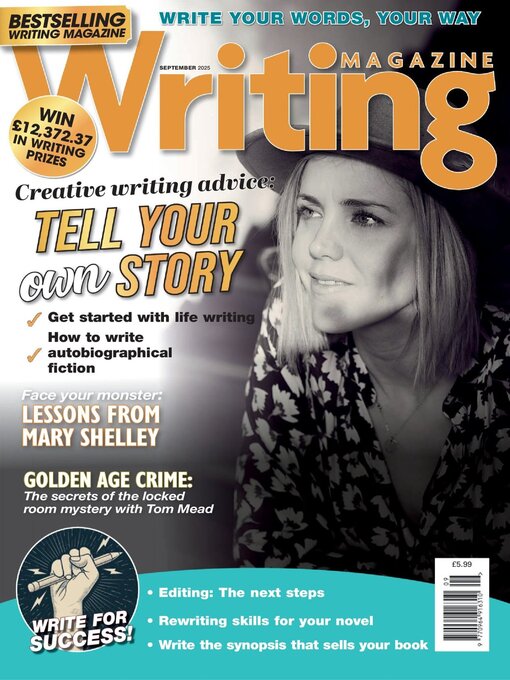
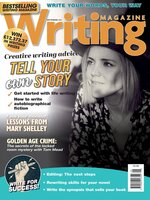 Sep 01 2025
Sep 01 2025
 Aug 01 2025
Aug 01 2025
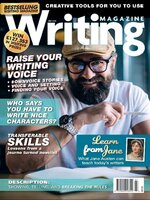 Jul 01 2025
Jul 01 2025
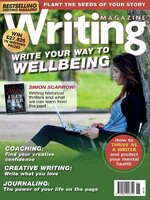 Jun 01 2025
Jun 01 2025
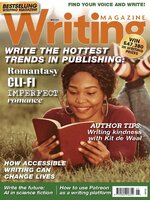 May 01 2025
May 01 2025
 Apr 01 2025
Apr 01 2025
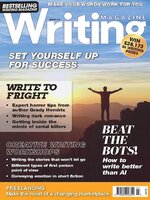 Mar 01 2025
Mar 01 2025
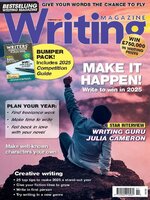 Feb 01 2025
Feb 01 2025
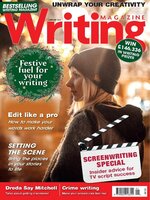 Jan 01 2025
Jan 01 2025
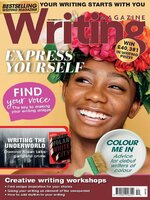 Dec 01 2024
Dec 01 2024
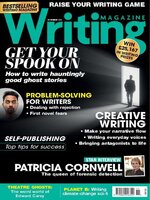 Nov 01 2024
Nov 01 2024
 Oct 01 2024
Oct 01 2024
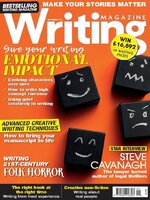 Sep 01 2024
Sep 01 2024
 Aug 01 2024
Aug 01 2024
 Jul 01 2024
Jul 01 2024
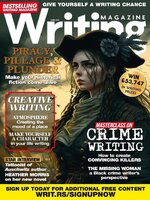 Jun 01 2024
Jun 01 2024
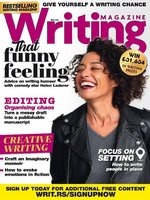 May 01 2024
May 01 2024
 Apr 01 2024
Apr 01 2024
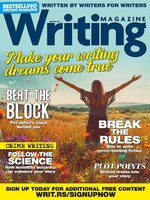 Mar 01 2024
Mar 01 2024
 Feb 01 2024
Feb 01 2024
 Jan 01 2024
Jan 01 2024
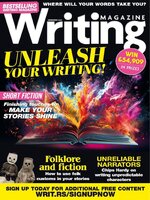 Dec 01 2023
Dec 01 2023
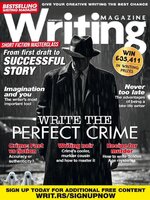 Novemeber 2023
Novemeber 2023
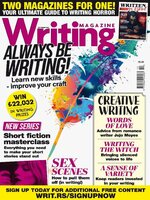 Oct 01 2023
Oct 01 2023